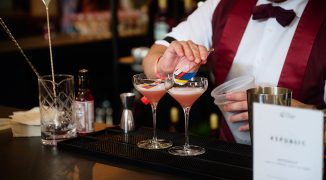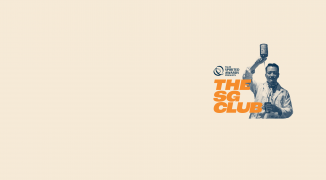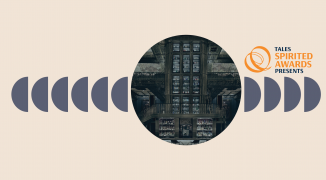On most of the chalkboards outside Paris’s street-corner bistros, there’s a list of happy-hour cocktails that hasn’t changed in decades: Long Island Iced Tea, Piña Colada, Sex on the Beach, lurid colors and umbrella garnishes. Paris is notoriously slow to change, and for a while it looked as though the modern craft cocktail revival, which sparked a dimly lit, brown-liquor bar boom in cities from London to Louisville, might bypass the home of Harry’s Bar. But the efforts of the Experimental Cocktail Club, established here in 2007, have begun to bear fruit. The bar, once a hipster curiosity, has become a bootcamp for aspiring mixologists, who have gone on to open a series of highly individual places of their own.
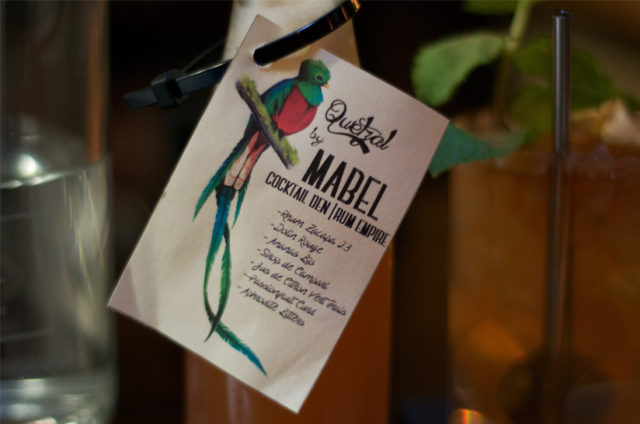 In the second arrondissement, Mabel serves grilled cheese in the front and rum in the back.
In the second arrondissement, Mabel serves grilled cheese in the front and rum in the back.
That individualistic spirit is what defines the Paris scene, according to Carina Soto Velasquez Tsou, a nominee for International Bartender of the Year at this year’s Spirited awards. “Today the Parisian bar scene is strong because of the quality of the bartenders,” she says. “They do a good job following their personalities and creating spaces that fit them. I don’t think a bar scene can be judged by ingredients or concepts—for me it’s all about the people behind it.” Along with her husband Adam and their partner Josh Fontaine, both Americans, Colombia native Tsou founded Candelaria in 2011—a speakeasy in the Haut-Marais district, tucked behind a nondescript white door in the back of a steamy storefront taqueria. They’ve now expanded to four very different bar-restaurant hybrids, all marked by an iconoclastic spirit.
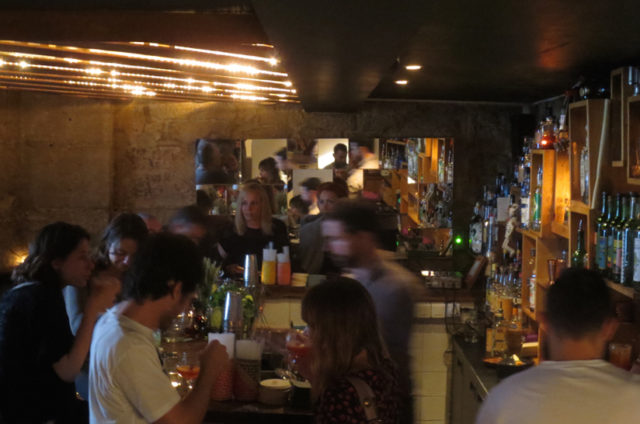 Candelaria, a speakeasy in the Haut-Marais district, brought a new wave of individualistic cocktail bars to Paris.
Candelaria, a speakeasy in the Haut-Marais district, brought a new wave of individualistic cocktail bars to Paris.
Given that most craft cocktails hover in the 12-14 euro range, two or three times as much as a decent glass of wine, Paris’s new-wave cocktail bars tend to attract a well-heeled international clientele, alongside a few hyper-stylish locals enamored with all things Brooklyn. (Carina Tsou’s favorite drink of the moment is the Frozen Brancolada, a mix of Branca Menta, Appleton rum, coconut cream, pineapple and orange juice, on tap at Williamsburg’s Latin-accented Donna.) It’s not enough just to provide good drinks: the food and the ambience have to be unusual, distinctive, and worth paying for. “We open places with concepts that we feel strongly about it, choosing the right location that will add value to the city and the area, and also that fits the ‘quixotic’ side of our group,” explains Tsou. Divey beer-and-hot-dogs joint Glass was recently joined by Le Mary Celeste, an airy seafood restaurant strong on gin and amaro — a more classic fit for the city.
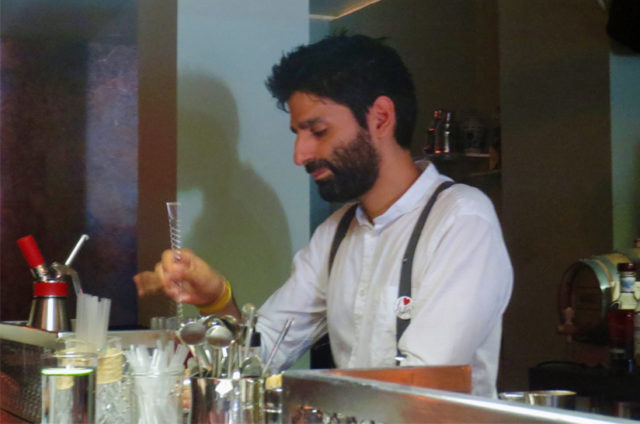 A bartender at work behind the stick at Mabel, a favorite after-work destination among Paris’s industry set.
A bartender at work behind the stick at Mabel, a favorite after-work destination among Paris’s industry set.
It’s impossible to talk about the Paris cocktail scene without mentioning Forest Collins, an American expat who has become a one-woman ambassador for her adopted city’s bars. We meet at Mabel, on the Rue d’Aboukir, in a stretch of the second arrondissement that’s become a cocktailing hotspot. Following the high-end drinks/low-end food model that works so well for Candelaria, Mabel is a grilled-cheese restaurant in front and a “rum empire” in the back, run by Frenchman Joseph Akhavan and his American wife Samantha Sanford. “It’s a bartender’s bar,” Forest says. “It’s where everyone comes after their shift.” The menu is a testament to its community spirit: the back page is devoted to listings of other recommended cocktail bars in the city.
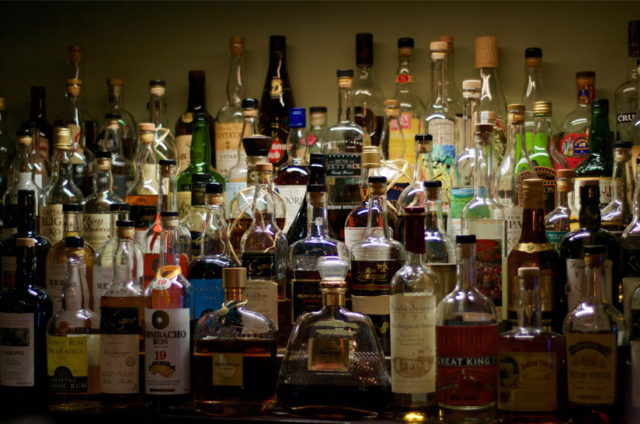 The bar at Mabel boasts an impressive arsenal of rum.
The bar at Mabel boasts an impressive arsenal of rum.
Mabel’s own drinks menu changes regularly and includes flavor profile notes to help direct imbibers new to some craft cocktail elements: Mabel’s Treacle, a mainstay on the list, is classified as leger (light), frais (fresh), epicé (spicy) and fruité (fruity). The long drinks are as complex and layered as the short: the Aboukir Punch, named for the street the bar is on, is a refreshing, slightly smoky mix of betel-infused tawny port, five-year-old Doorly’s rum, organic grenadine and a grapefruit-cardamom sherbet, sharpened with a splash of lemon juice and teapot bitters (all the syrups, shrubs, sherbets and garnishes are concocted in-house). The presentation of all the drinks is singular and thoughtful: the Bamboo Crane, a twist on the Manhattan, comes pre-batched in a glass bottle and topped with an origami bird; the rum-based Quetzal, a burst of exotic fruit, also arrives in a bottle with a hand-lettered ingredient list tagged to the side. “I like to put a drink down on the table and see people’s eyes light up,” Joseph says, explaining his love of creative presentation. “Each drink is a surprise, and enjoying it starts with the eyes.”
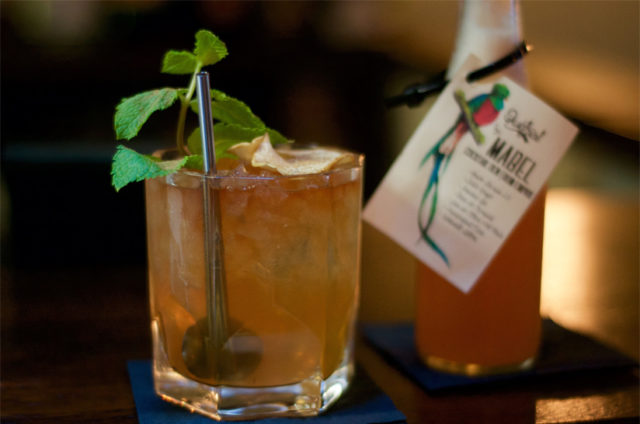 A rum cocktail at Mabel.
A rum cocktail at Mabel.
The newest bar from the ECC stable is Night Flight, which opened this summer in the renovated Hotel Bachaumont, around the corner from Mabel. It’s an intimate version of the classic hotel bar, with a drinks menu that balances originals with classics. A dry martini is superlative, with the slight sweetness of Hayman’s Old Tom gin, recommended by the bartender, perfectly offsetting the salty olive. The more adventurous drinks could be a little heavy-footed, although the simple, crisp Fennel Collins, marrying Citadelle gin with Fenouillette Denoix liqueur, lemon, and soda, was a standout.
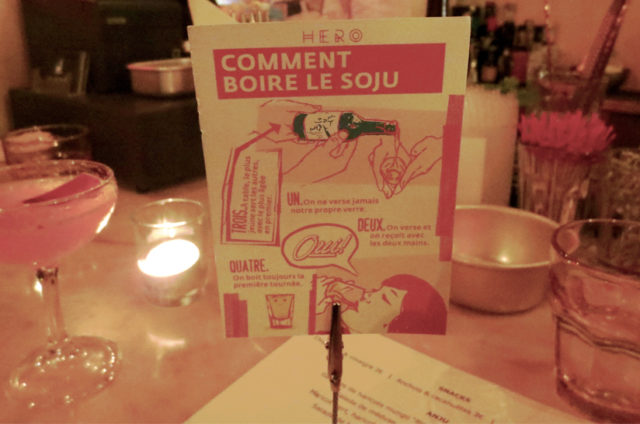 Hero, a new venture from the Candelaria team, serves cocktails with Korean spirits and ingredients, like soju.
Hero, a new venture from the Candelaria team, serves cocktails with Korean spirits and ingredients, like soju.
After the refinement of Night Flight, the buzz and bustle of Hero, the latest venture from the Candelaria crew, is a welcome jolt. Downstairs, it’s a bar serving wildly inventive concoctions involving soju, tapioca pearls, and litchi, and up a staircase illuminated with a garish, glowing neon heart (perhaps a warning about what the place could do to your vital organs if you made it a habit), the restaurant serves Korean fried chicken so tender and sticky there’s a stone washbasin for your fingers smack in the middle of the dining room. If none of that sounds remotely Parisian, that’s by design. In a city not known for its sense of humor about food and drink, the brash, diverse cocktail scene is, above all, gloriously good fun.



